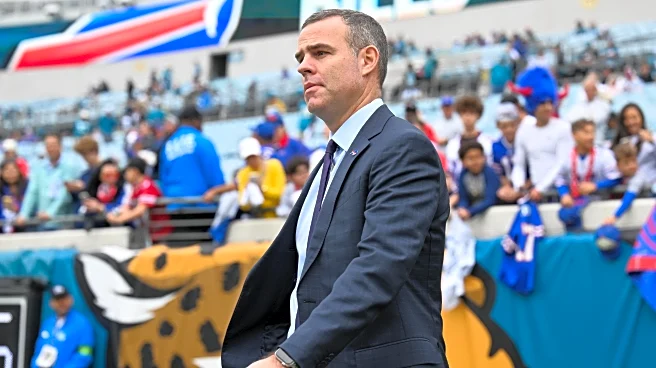Rapid Read • 8 min read
The European serviced apartment sector has shown strong performance in 2024, driven by increased leisure demand and a recovering corporate segment. Despite a rise in supply, occupancy levels have exceeded expectations, with a 3.8% increase from 2023 to 2024. The sector's performance is primarily led by occupancy rather than average rate growth, contrasting with traditional hotels. The report highlights regional variations, with London achieving high occupancy but experiencing a softening in average rates. Paris saw significant occupancy growth due to the Summer Olympics, despite a decrease in average rates. Operators are adapting to changing travel behaviors, with a focus on technology to enhance efficiency.
AD
The growth in the serviced apartment sector indicates a shift in travel preferences, with longer stays becoming more common. This trend aligns with the needs of modern travelers, including 'bleisure' travel and relocations. The sector's resilience amid economic uncertainties and operational pressures suggests its potential for continued expansion. The corporate segment is expected to drive growth in 2025, challenging the perception that corporate travel has permanently declined post-pandemic. The sector's adaptability and lower labor costs compared to traditional hotels make it attractive to investors and lenders, despite rising operational costs.
The serviced apartment sector is poised for expansion, with a pipeline of 16,500 rooms expected to enter the market over the next five years. Key markets for growth include the UK, Germany, Spain, and France. Operators are focusing on renovations and rebranding rather than new developments, aligning with sustainability goals. The lending environment remains competitive, with attractive debt terms for top operators. The sector's operational flexibility and technology adoption position it well for future growth, despite ongoing global uncertainties.
The shift towards longer stays and flexible booking policies reflects broader changes in traveler behavior, driven by economic uncertainty and geopolitical instability. The sector's focus on technology, including automated guest communication and smart energy management, highlights a push for efficiency and sustainability. The competitive lending environment suggests potential credit risks if the demand-supply imbalance persists. The sector's adaptability and alignment with modern travel needs underscore its long-term viability.
AD
More Stories You Might Enjoy












